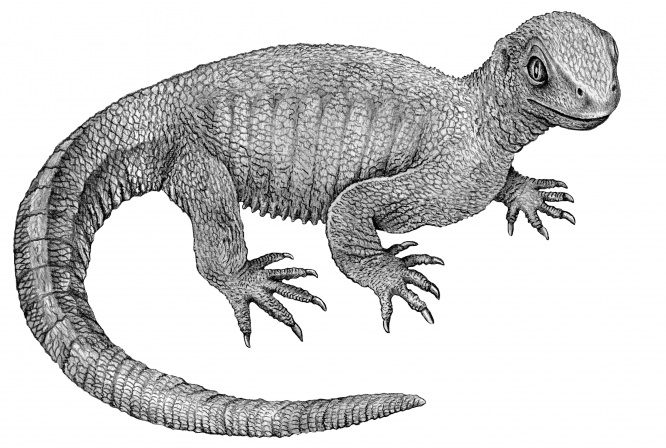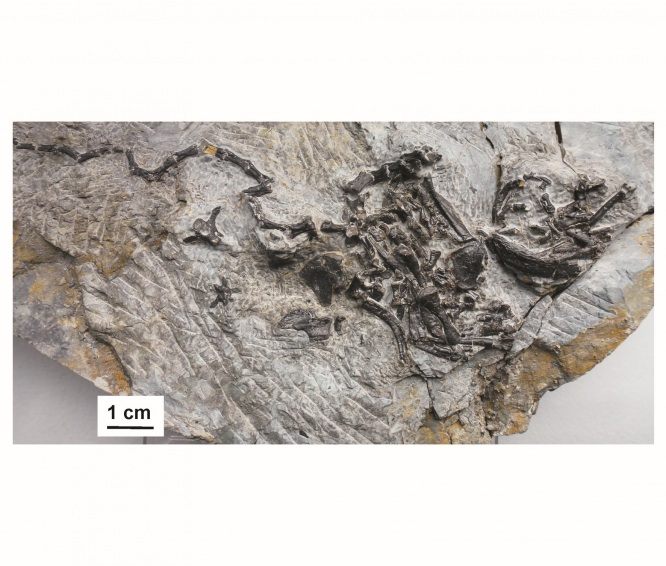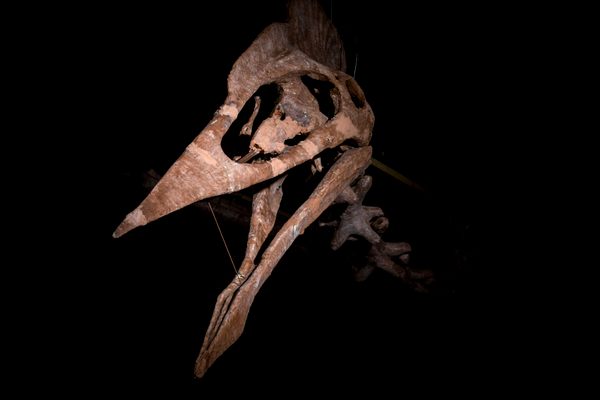FOUND: A Fossil That Shows How Turtles Got Their Shells

Meet Pappochelys. (Image: Rainer Schoch, Stuttgart Natural History Museum)
Turtles, if you stop to think about it, are really strange and amazing creatures. They’re like mini-dinosaurs that have somehow grown part of their skeleton on the outside. How in the world did that happen?
That’s actually been a pretty big mystery. As curators Rainer R. Schoch and and Hans Dieter Sues write in a new paper in Nature: “The origin and early evolution of turtles have long been major contentious issues in vertebrate zoology.” But they think they’ve found part of the answer: an extinct species of reptile that they’ve named Pappochelys.
Pappochelys is not quite a turtle yet—but it’s on its way. It could grow up to 8 inches and used its “tiny, peg-like teeth” to eat worms and insects, Smithsonian Institution explains. But it also has turtle-like features, including, most importantly, bones on its belly that are starting to fuse together into something like a shell.

Gotta get those belly bones working together (Image: Rainer Schoch, Stuttgart Natural History Museum)
Pappochelys also lived right in between creatures we recognize as turtles and extinct creatures that not all scientists were convinced were turtle ancestors. Pappochelys “is far older than all so far known turtles,” by 20 million years, Schoch told Reuters. It’s a “missing link” that allow scientists “to tell this really cohesive story on the origin of the turtle body plan,” another curator told NPR. And it’ll help turtle experts answer the ultimate mystery in the shell game: Why, exactly, did some reptiles end up wearing their bones on the outside?

There’s a turtle ancestor in there somewhere (Image: Rainer Schoch, Stuttgart Natural History Museum)
Bonus finds: A new dinosaur named Sefapanosaurus, water ice on the surface of comet 67P, weapons that Swiss peasant used to defeat the army of the Holy Roman Emperor in 1315, the only known egg specimen of a rare bird, hairy-chested yeti crabs
Every day, we highlight one newly lost or found object, curiosity or wonder. Discover something unusual or amazing? Tell us about it! Send your finds to sarah.laskow@atlasobscura.com.















Follow us on Twitter to get the latest on the world's hidden wonders.
Like us on Facebook to get the latest on the world's hidden wonders.
Follow us on Twitter Like us on Facebook